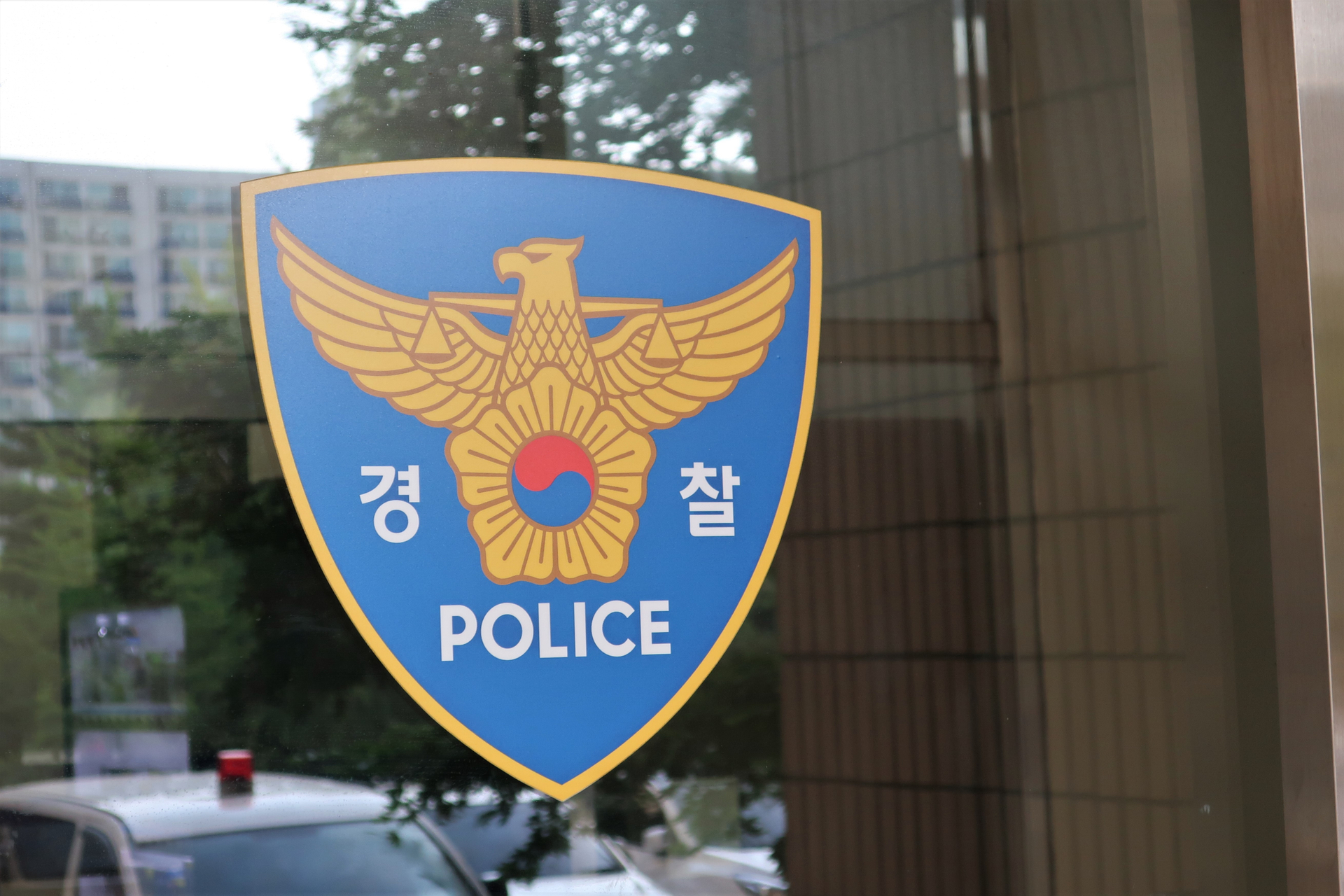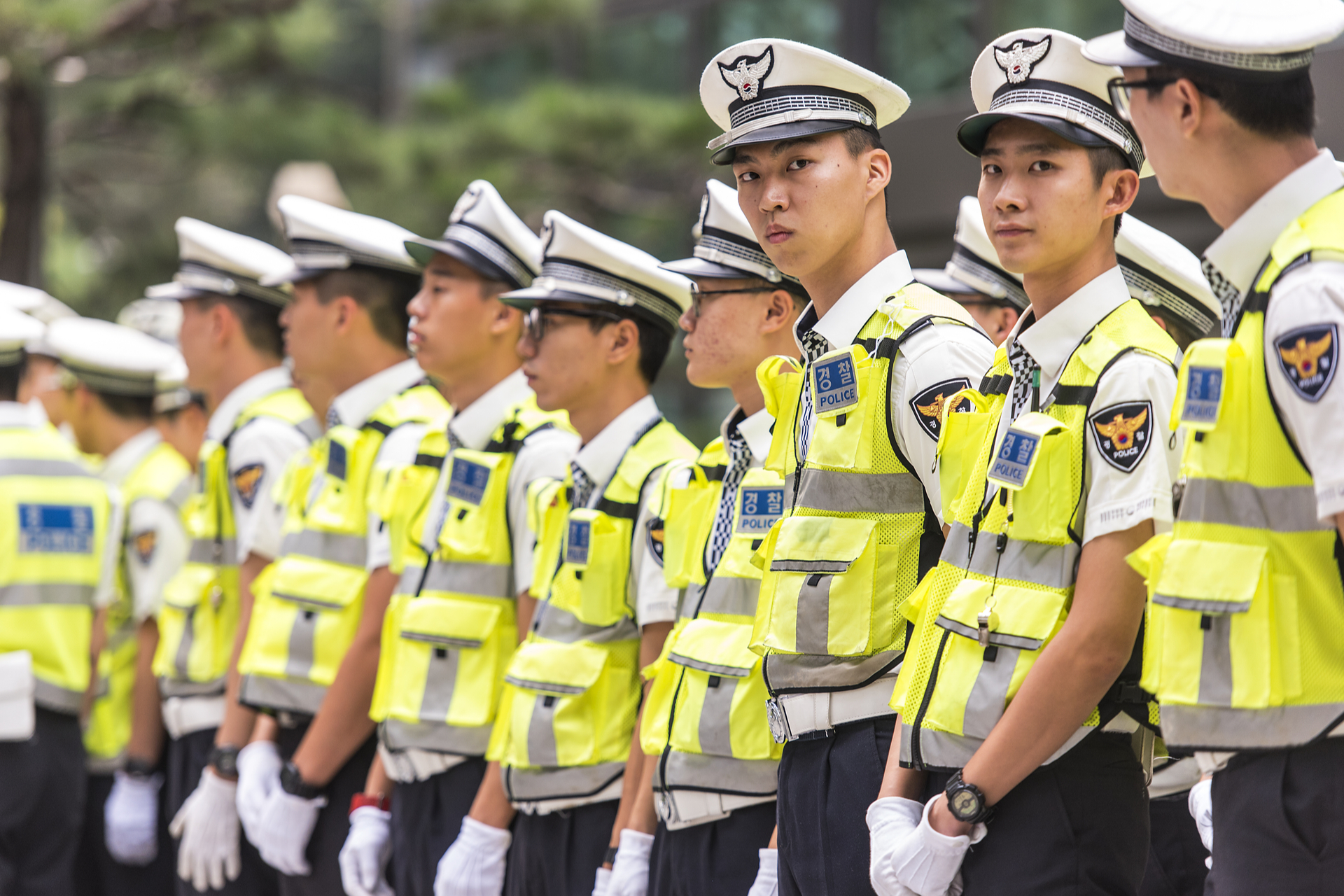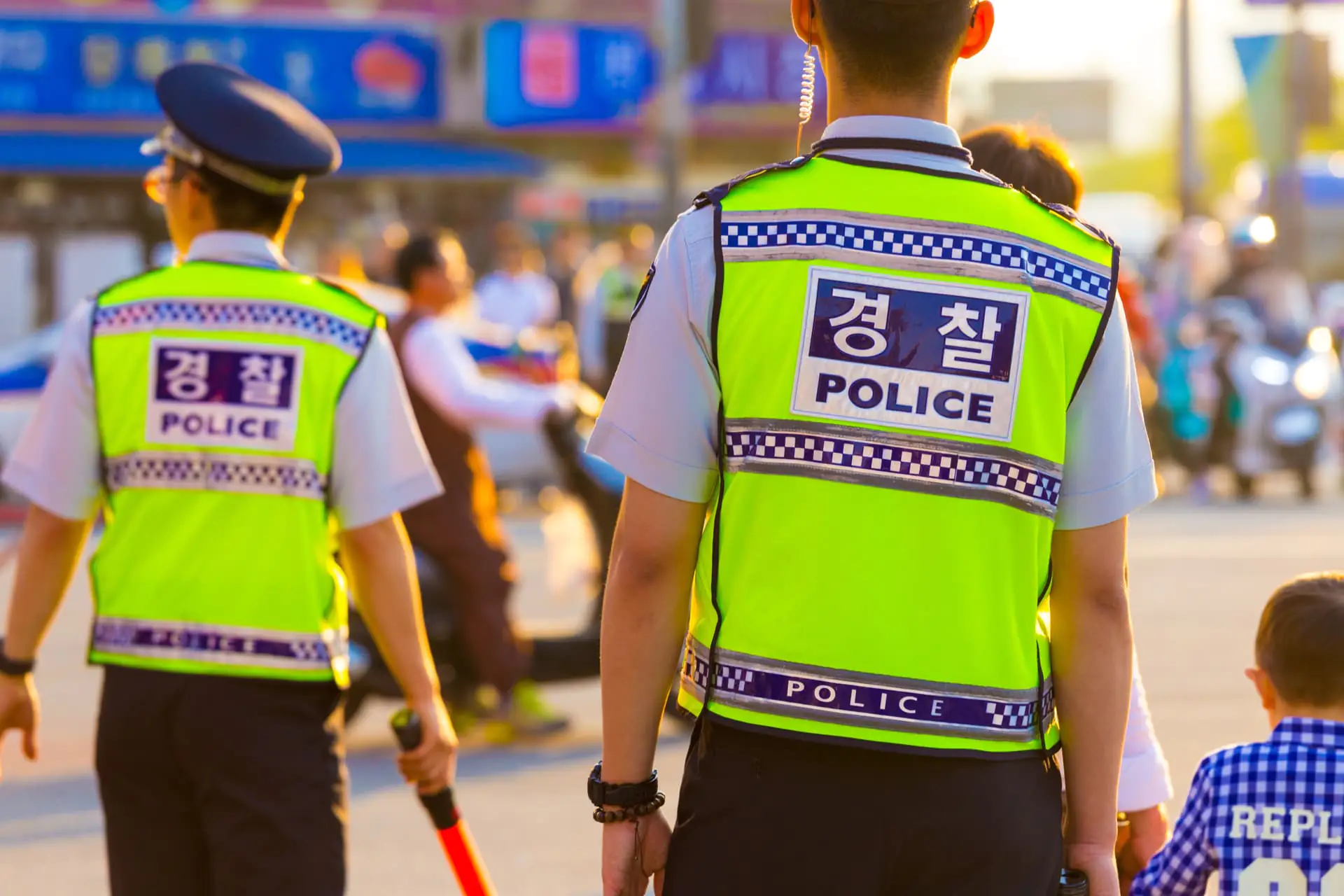The Korean Wave is in full swing. From pop music sensations BTS, to the Oscar-winning ‘Parasite’, South Korea’s cultural exports have truly entered the mainstream. But high-quality entertainment is far from all this booming nation has to offer: South Korea is starting to make a name for itself in police education.
Dubbed the ‘K-Cop’ Program in reference to the international success of K-Pop, the Korean National Police Agency (KNPA) has been exporting policing knowledge and expertise to developing countries.
Once the most feared institution in the country, South Korea’s police force has now become a shining example of so-called ‘smart policing.’ As the country moves beyond a turbulent 20th century, during which the United States helped it emerge from the aftermath of the Korean War, the nation now finds itself in a position to help developing countries strengthen their law enforcement institutions.
So what is this K-Cop program all about? And how has South Korea’s police force come so far in such a short amount of time?
The most ‘anti-communist’ institution in the country
When the Korean War ended in 1953 and the peninsula was divided into two separate countries, the US-allied South had to rebuild all of its institutions from scratch. Due to ongoing tensions between the newly formed nations, an authoritarian government (whose top priority was to suppress any hint of sympathy with the North) soon emerged.
Over the subsequent decades, elections were not free, economic development was limited, and public speech was highly regulated. The police force, with its staunchly anti-communist and anti-democratic beliefs, had full governmental control. Their main task was to thwart any pro-democracy movements while silencing anyone opposed to the government. During this time, brutal interrogation techniques such as waterboarding and severe beatings were commonplace.

When the first free elections took place in 1987 as a result of a nationwide student-led movement, South Korea’s police vowed to earn the trust of its people. This was no easy task, as the events that led to the fall of the dictatorship had been sparked by the torture and subsequent death of a student at the hands of the police earlier that year.
The KNPA’s successful strategy
Once democracy had arrived in South Korea, new guidelines were set for the KNPA. In line with the government’s less restrictive policies, new public freedoms and more humane protocols for handling detainees were drafted. A far-reaching PR strategy was also implemented: cartoonists were even hired to design friendly mascots for police-related signs, banners, and stationery.
KNPA’s rebrand was a resounding success, with these new strategies inspiring more trust between the people and their police forces. When, in 2017, massive protests led to the ousting and imprisonment of former president Park Geun-hye, the demonstrations remained peaceful from police and protesters alike. This highlighted the mutual empathy and trust that had by then been forged between the South Korean people and the KNPA.

It is this ability to reform itself and these ‘smart policing’ tactics, mainly in protest management, that the South Korean police force aims to teach overseas. For instance, heavy-handed responses have been replaced by measures aimed at preventing protests from even happening in the first place.
Police agents in their thousands now form blockades, and hundreds of buses are lined up for crowd control in the lead-up to a planned demostration. Checkpoints to stop vehicles bringing protesters are also put in place across certain key spots, and the operation of public transport is nearly brought to a halt.
Just last October, what would have been a large anti-government gathering was successfully prevented by the KNPA’s strategic fortification of Seoul’s Gwanghwamun Square, where these kinds of events tend to take place.
Since 2005, when the program was first implemented, over 1,000 officers from 110 countries have received training and guidance by the KNPA. And in recent years, South Korea’s most recognised experts have traveled to the UAE and Oman to share their knowledge on protest handling with the local police.
The ‘K-Cop’ program also includes technical assistance to departments in developing countries. In Vietnam, for example, a Forensic Science Institute was recently established in Hanoi, its capital city, with the help of South Korean technology and expertise. In the Philippines, Korean police cars and motorbikes now patrol the streets of its major cities. Meanwhile, in Angola, the local emergency dispatch is heavily modeled on South Korea’s; and Guatemala has also ventured into smart policing with the establishment of a new cybercrime unit with guidance from the KNPA.

As well as helping these countries strengthen their law enforcement institutions, another key goal of the KNPA’s outreach initiative is to increase international cooperation in the combat against drug trafficking, terrorism, cybercrime and other forms of organized crime.
This was evidenced by the country’s hosting of the 2019 International Police Summit in Seoul, where police chiefs from 30 countries met to discuss the Global Partnership for Smart Policing. Moreover, South Korea is now spending $20 million on the ‘K-Cop’ Program per year, with the number of countries seeking help steadily increasing.
A global example
With its successful transformation in recent decades, the KNPA is now one of the most respected institutions in South Korea and enjoys widespread international prestige. It provides a fascinating case study of how, with the right know-how and application, the relationship between the public and the police can recover from even the most turbulent of pasts, and build towards a brighter and more harmonious future.

